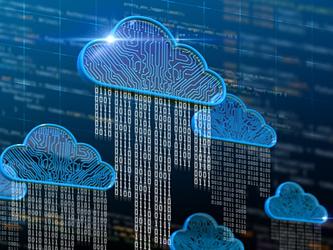Is research ready for the ‘dataverse'?

It’s been more than seven months since Facebook announced it was rebranding to Meta and would focus its future on the upcoming ‘metaverse’. Since then, everybody has been talking about it. Chances are, you have already read ample commentary on what it means for every industry imaginable. The fact of the matter is the term doesn’t really refer to any one specific type of technology but describes a sort of shift in how we interact with technology. The concept is still rather nebulous, and we’ve only just begun to explore its vast and far-reaching possibilities.
What is particularly compelling from a research point of view is the idea of the endless opportunities that can exist within one digital space. This is where things get exciting, and where I see the concept of what I call the ‘dataverse’ coming in.
What is the dataverse?
The dataverse is a concept that’s useful to an industry emerging stronger and ever more digital post-pandemic, and one that forges deeper links between all parties working on a project. What we create as researchers is something major business decisions often hinge on, but we’re all guilty of letting powerful data exist and be shared through a wide range of different platforms and systems on each project. I counted up to 15 used on one project I’ve worked on.
Excel and PowerPoint are very useful tools, but rather than a series of static documents, what the industry needs is an enabler to make the data created as useful as possible. The dataverse concept should be about creating usable data on an ongoing basis – together with past data – that can be continually enriched by other sources, such as customer relationship management (CRM) systems. Crucially it should also be actionable from within one data universe.
A range of platforms exist, but how about one, seamless, customer-centric journey from start to finish with no need to download or exit at any stage – even when sharing with others?
Can data be the next NFT?
Going even further, imagine a world where market research lives in digital wallets in the same way non-fungible tokens (NFTs) live within virtual wallets.
Data NFTs can represent the copyright (or exclusive license against copyright) for a data asset on the blockchain. NFTs could be used to track, manage and sell our data to the highest bidder. They can essentially have an ongoing royalty on resell making it possible to share, trade and track any digital asset. When it comes to data as an NFT, you are able to take advantage of the wider NFT ecosystem and all of the possibilities that come along with it.
The democratisation of data
Ownership is an interesting debate within the metaverse concept. The question arises – who retains control of brand and assets within the virtual world?
Democratisation of data is a theme for this year – a dataverse will only enable useful access for all. With a digitally fully-connected approach, we should open the door for more collaboration and more of a pivotal role for market research. And by collaboration, I mean different researchers and analysts potentially working together on a project – whether on parts or as a whole.
The key here is that this isn’t a concept to be closely guarded – it’s something I see we can all participate in. Research technology isn’t a new concept, but it’s one that hasn’t been fully exploited.
The dataverse offers us the opportunity to create simplicity through bringing everything together and creating a seamless experience that saves time, adds quality and reduces margin of error. The impact of the metaverse will unfold gradually over the next few years. In this metaworld, how far can we push the idea of the dataverse?
Lewis Reeves is founder and chief executive at Walr

We hope you enjoyed this article.
Research Live is published by MRS.
The Market Research Society (MRS) exists to promote and protect the research sector, showcasing how research delivers impact for businesses and government.
Members of MRS enjoy many benefits including tailoured policy guidance, discounts on training and conferences, and access to member-only content.
For example, there's an archive of winning case studies from over a decade of MRS Awards.
Find out more about the benefits of joining MRS here.













0 Comments